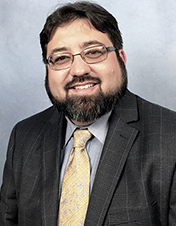W
e want to inspire you to have an encounter in your profession, with your students, with your colleagues and with the Master Teacher. This section will seek to provoke, inspire and inform. Let’s talk about revolution…
A Legacy of Revolution
Our schools were first established in the 1870’s and we’ve believed in wholistic education since the beginning, but we weren't the only ones. We were continuing a revolution started with the Protestant Reformation. The early reformers understood that to be effective they needed to develop an educated mind. The development of an active, curious, self-actualized individual is the fertile ground God intended for us.
Luther and Melanchthon saw the path to reform in education. “To neglect the young in our schools is just like taking the spring out of the year. They indeed take away the spring from the year who permit the schools to decline, because religion cannot be maintained without them.”
Under this belief these two reformers reorganized the schools in Eisleben and Madgeburg. These schools had several key elements.
First, teachers did not burden the children with too many books and studies. They focused on how to think, not what to think. They valued depth of knowledge over breadth.
Second, the theoretical was always to be matched with the practice. “They should learn to do, by doing”; was the mantra.
Third, independence of thought and individuality was honored and protected.
Fourth, competitive grading/testing and pomp and circumstance were avoided.
We were meant to be the dreamers, the thinkers, the non-conformists, the troublemakers and the revolutionaries for Christ. Let’s relight the fires and act more like revolutionaries and reformers. In the coming months we will look at current examples of the four elements of a revolutionary education.
encounter
A Legacy of Revolution

Steve Bralley, MA.Ed
Superintendent, Kentucky-Tennessee Conference
Summer 2019